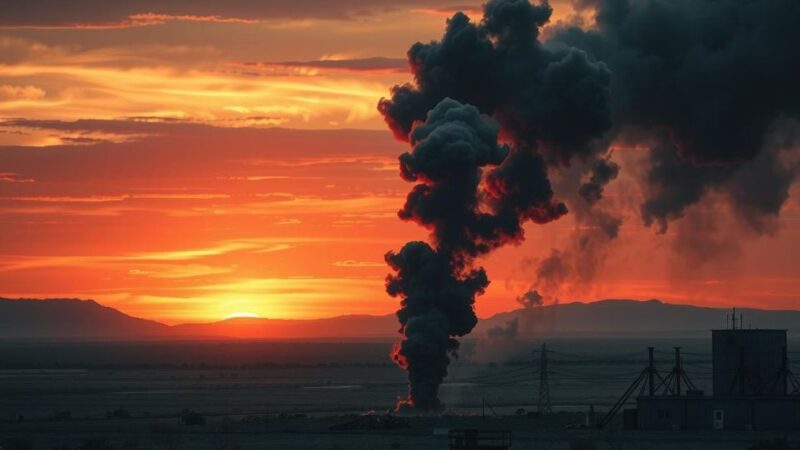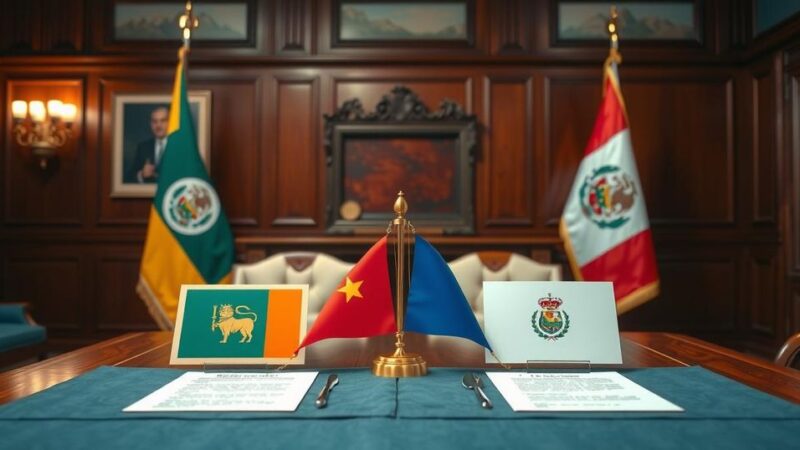Amnesty International has revealed that French-manufactured Galix systems are being used by the RSF in Sudan, likely violating the UN arms embargo on Darfur. The report underscores the urgent need for all nations to cease arms supplies to the conflict zones in Sudan, emphasizing the significant humanitarian impact of continued military support. The organization calls for enhanced scrutiny of international arms trade relationships.
In a recent investigation by Amnesty International, it has been revealed that French-manufactured military technology, particularly the Galix reactive defense system, is being utilized in the ongoing conflict in Sudan, thus violating the imposed UN arms embargo on Darfur. The Rapid Support Forces (RSF) are reportedly deploying Nimr Ajban armored personnel carriers (APCs) manufactured in the United Arab Emirates, which are equipped with this advanced French system. Images corroborating this use have been verified, underscoring the implications of international arms transfers in conflict zones. This Belgian-made Galix System, developed by Lacroix Defense and KNDS France, is intended to protect military vehicles from threats by deploying decoys and smoke. Agnès Callamard, the Secretary General of Amnesty International, has expressed grave concerns regarding the usage of these arms, emphasizing the urgent need for a halt in all arms supplies to the warring parties in Sudan to mitigate civilian suffering. She stated, “Our research shows that weaponry designed and manufactured in France is in active use on the battlefield in Sudan.” The report highlights the established defense relations between France and the UAE, with extensive military exports over the years. Since 1994, the European Union has enforced an arms embargo on Sudan, prohibiting the transfer of military equipment, including arms and ammunition. France’s legal obligations compel it to ensure that arms transferred to other countries do not contribute to human rights violations. The deteriorating situation in Sudan, marked by widespread violence and displacement, necessitates urgent action to prevent further loss of civilian lives. Amnesty International advocates for a broader arms embargo encompassing all of Sudan and calls for strengthening the implementation of existing sanctions. The global community is urged to remain vigilant and proactive in preventing arms from exacerbating humanitarian crises in conflict-affected areas like Sudan.
The conflict in Sudan escalated in April 2023, leading to significant loss of life and displacement of millions. The ongoing violence has raised international alarms regarding the supply of arms to parties involved in the conflict. The UN arms embargo specifically targets Darfur but the situation warrants a comprehensive approach covering the entire nation due to the escalating humanitarian crisis. Amnesty International’s investigation into the use of French arms in this conflict highlights the complexities surrounding international arms transfers and compliance with human rights obligations.
Amnesty International’s investigation underscores the critical intersection of international arms trade and humanitarian law, particularly as it pertains to the conflict in Sudan. The use of French-manufactured military technology by RSF forces, despite European Union sanctions, illustrates the dire need for stringent enforcement of arms embargoes and the cultivation of international accountability. A call for an expanded arms embargo is essential to protect civilians and prevent further exacerbation of the existing humanitarian crisis in Sudan.
Original Source: www.amnesty.org






